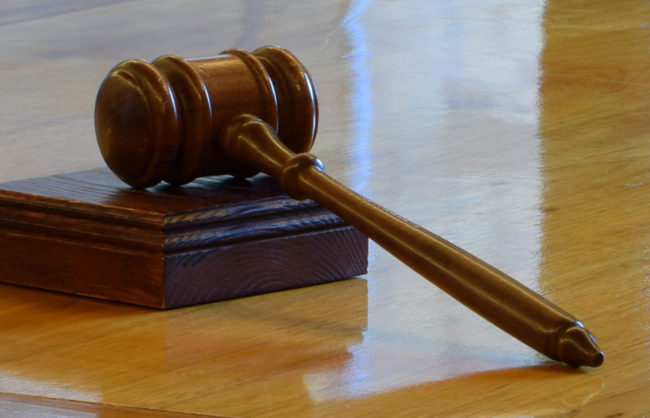
The Ketchikan Gateway Borough’s lawsuit challenging the State of Alaska’s established education funding system has entered the final stretch. Both sides have submitted their last set of briefs for their appeals to the Alaska Supreme Court, and the borough and the state now will prepare for next month’s oral arguments.
The lawsuit has been ongoing for about a year and a half, and while borough officials are adamant that they’re in the right, questions from the public posted on social media and news websites indicate some doubt: What’s the point of this lawsuit? Why was it filed? Why did the borough win in Superior Court? And, how will public schools be funded if Ketchikan wins the Supreme Court appeal?
The Ketchikan Gateway Borough’s big point, the one they successfully argued in Superior Court, is that the State of Alaska’s requirement that boroughs and some cities provide a specific percentage of assessed property values for public schools breaks the law.
Borough officials convinced Judge William Carey that the required local contribution is, in essence, a state tax for schools. And Alaska’s Constitution prohibits the state from establishing a dedicated tax – that’s a tax earmarked for something specific.
But, what does it matter? One of KRBD’s Facebook followers commented that whether it’s through borough taxes or state taxes, the public still will pay in the end.
Borough Manager Dan Bockhorst said that’s not completely correct; it’s a matter of spreading the cost of public education further than the current system.
“We’re not all paying in Alaska. One-third of the school districts in Alaska are exempt from the required local contribution,” he said. “If things were made equal for all residents throughout Alaska, our estimate is that Ketchikan Gateway Borough School District would gain perhaps $500,000 to $1.6 million compared to the current system. In other words, we are paying far more than our share in terms of what we’re getting.”
Another Facebook comment criticized the borough for not wanting to fund local education. Bockhorst counters that the state-required payment – this year about $4.7 million — is only one of several local funding sources for Ketchikan’s public education.
“In addition to that $4.7 million, which does nothing but enrich the State of Alaska – it doesn’t benefit our school district – the borough provides $3 million in cash to our school district for discretionary funding above the level that the state sets [for] basic need,” he said.
Bockhorst said the borough also provides debt service for school buildings and pays for shared facilities, such as the pool and athletic fields. He estimates that the total contribution this year from the borough to local schools – including the required contribution – is $12.65 million.
The argument he just made, by the way – that the required local contribution only benefits the state — that’s because the local contribution is part of the basic need calculated by the state. The borough argues that local governments are subsidizing the state’s responsibility to provide for basic public education needs.
Bockhorst said the lawsuit is about equity and fairness, and about holding the state back from passing more fiscal requirements in the future on to local government.
“I’m convinced that if the borough had not initiated this litigation, the required contribution that would have been imposed on the Ketchikan Gateway Borough and 34 other school districts in Alaska, to the exclusion of 19 others that our contribution rates would grow very significantly,” he said.
I read him a few more comments from social media, to get his responses.
Comment: Because of this, the schools in Ketchikan can’t afford to stay open all next school year.
Bockhorst: “They’re funded at a level that I believe the school board and administration is reasonably happy with.”
Comment: Sure the state could adjust the funding scheme, but where does Ketchikan think the money is magically going to appear?
Bockhorst: “It’s going to magically appear from all citizens of Alaska equally and fairly, instead of just 2/3 of the citizens of Alaska.”
Comment: The same borough that gave away Ward Cove property several times doesn’t want to pay anything to fund education. That figures. It appears to lack an education.
Bockhorst: “Again, it’s incorrect to say we don’t want to pay anything for education. We don’t want to pay unconstitutional taxes.”
Whether that required local contribution is, indeed, unconstitutional remains to be seen.
Oral arguments in front of the Alaska Supreme Court in Anchorage are scheduled for 1:30 p.m. Sept. 16. Each side will have 30 minutes to present their case.
Ketchikan Borough Attorney Scott Brandt-Erichsen said it could be several months before a decision is announced. He hopes a ruling will be made before the Alaska Legislature convenes in mid-January.
